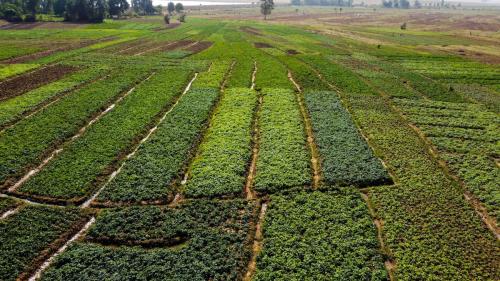Editor’s Note: This is the third of a three-part series by Richard Joseph, who examines Africa’s “prismatic narrative,” in which African developments must be viewed “through the prism of how key dimensions interrelate and the complex interplay of local, regional, and global factors.” Read the first and second parts.
At the time of the G8 and NATO summits, Africa has assumed greater importance in global hopes and concerns. Accelerated growth and development, democracy, and the containing of organized violence are central themes of the new African security agenda. Two decades ago, African issues, except for the export of crude petroleum and other minerals, could be bottled up within the continent. That is no longer the case. Major discoveries of oil, gas, and coal are making the continent more significant in meeting global energy needs. Abundant and underutilized land will steadily contribute to global food supplies. And expanding economies will continue to provide increased opportunities for investors. It is the physical security side of the African ledger, however, that poses the greatest challenge. How this is tackled will greatly affect progress in other areas.
I call this the “prismatic narrative” because it requires assessing African developments through the prism of how key dimensions interrelate and the complex interplay of local, regional, and global factors. In a forthright article in Foreign Affairs (May/June 2012), General Raymond T. Odierno, Chief of Staff of the U.S. Army, discussed adjustments in American forces in response to new strategic challenges. Following prolonged combat in Iraq and Afghanistan, General Odierno states that the U.S. Army, together with U.S. Special Forces and other units, will devote increased attention to “shaping the strategic environment, preventing the outbreak of dangerous regional conflicts, and improving the army’s readiness to respond to a range of complex contingencies worldwide.” Although General Odierno says little about Africa, what he details has huge implications for American engagement with the continent.
Read the full piece on the Chicago Council on Global Affairs »
The Brookings Institution is committed to quality, independence, and impact.
We are supported by a diverse array of funders. In line with our values and policies, each Brookings publication represents the sole views of its author(s).



Commentary
Op-edStrategic Priorities in Contemporary Africa: Part III
May 16, 2012